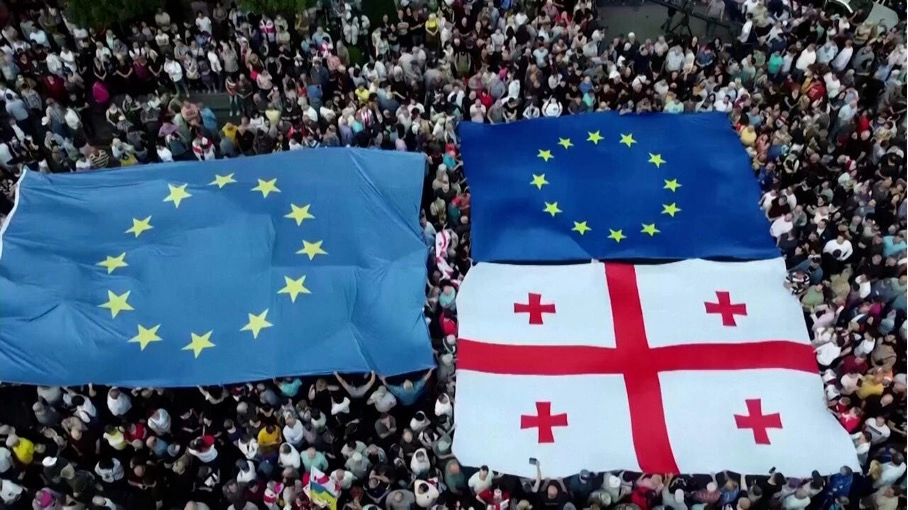The EU is placing Georgia at a crossroads with an ultimatum. If the ruling Georgian Dream party does not return to the democratic path and
respect European values, Brussels will shut its door.
by Mikheil Khachidze

The European Union’s Foreign Affairs Council, which met in Brussels Tuesday, July 15, sent one of its strongest warnings yet to the Georgian government.
In unusually direct language, the EU’s High Representative for Foreign Affairs and Security Policy, Kaja Kallas, declared:
“The attacks on democracy by the ruling Georgian Dream party are becoming more severe – and if this continues, there will be consequences.”
Among the measures now being seriously considered by the EU:
*Suspension of Georgia’s visa-free travel regime
*Reassessment of the Association Agreement
*Targeted sanctions
August 31: a hard deadline
The EU has given the Georgian government until August 31 to implement a set of key democratic recommendations.
These include safeguarding freedom of assembly, freedom of expression, the rule of law,
and protection of fundamental rights – all pillars of the EU’s political values.
Kallas stressed that the visa-free regime – granted to Georgian citizens since 2017 – is a “privilege, not a right.”
“If this bonus is granted to a country that fails to meet its obligations,
it shows they are not taking the relationship seriously. It is also a matter of trust,” she said.
Seven opposition leaders imprisoned
One of the most alarming concerns raised by Brussels is the imprisonment of seven out of eight major opposition figures –
a move the EU considers incompatible with its democratic standards.
“When we hear that seven of eight opposition leaders are in jail,
this clearly violates the conditions of the visa-free agreement and our shared principles,” Kallas stated.
The EU’s tone has shifted
This is not just another warning. The language from Brussels has notably hardened. Where previously the EU offered cautionary statements,
this time it is openly discussing legal mechanisms for reversing Georgia’s visa-free status and applying political or economic pressure.
If implemented, this would mark the first time the EU takes such punitive steps against an Eastern Partnership country –
a clear sign that patience
with the Georgian government is running thin.
Why now?
The EU’s reaction comes after a series of alarming developments in Georgia:
*The adoption of the controversial “foreign agents” law,
*Widespread crackdowns on civil society and protests,
*Physical assaults on activists and journalists,
*Open defiance of Western criticism by the ruling Georgian Dream party,
*Increasing consolidation of power by oligarch Bidzina Ivanishvili.
What’s at stake for Georgia?
Suspending visa-free travel and reevaluating the Association Agreement would not just be symbolic.
These steps would deliver a serious blow to Georgia’s international standing, limit its citizens’ mobility, and damage its economy –
particularly at a time when the country is facing rising political instability and global uncertainty.
The EU is placing Georgia at a crossroads. Either the ruling Georgian Dream party returns to the democratic path and respects
European values – or Brussels may begin to shut the door it recently opened by granting the country EU candidate status.
August 31 is not just a deadline – it is a test of whether Georgia chooses Europe or authoritarian isolation.